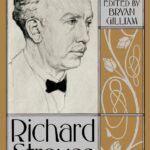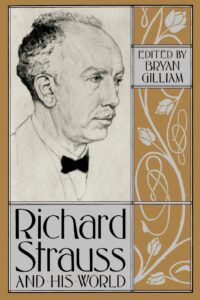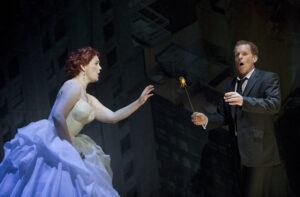Strongly influencing European musical life from the 1880s through the First World War and remaining highly productive into the 1940s, Richard Strauss enjoyed a remarkable career in a constantly changing artistic and political climate.
This volume presents six original essays on Strauss’s musical works — including tone poems, lieder, and operas — and brings together letters, memoirs, and criticism from various periods of the composer’s life. Many of these materials appear in English for the first time. In the essays Leon Botstein contradicts the notion of the composer’s stylistic “about face” after Elektra; Derrick Puffett reinforces the argument for Strauss’s artistic consistency by tracing in the tone poems and operas the phenomenon of pitch specificity; James Hepokoski establishes Strauss as an early modernist in an examination of Macbeth; Michael Steinberg probes the composer’s political sensibility as expressed in the 1930s through his music and use of such texts as Friedenstag and Daphne; Bryan Gilliam discusses the genesis of both the text and the music in the final scene of Daphne; Timothy Jackson in his thorough source study argues for a new addition to the so-called Four Last Songs. Among the correspondence are previously untranslated letters between Strauss and his post-Hofmannsthal librettist, Joseph Gregor. The memoirs range from early biographical sketches to Rudolf Hartmann’s moving account of his last visit with Strauss shortly before the composer’s death. Critical reviews include recently translated essays by Theodor Adorno, Guido Adler, Paul Bekker, and Julius Korngold.
Praise
“This book of essays, letters, memoirs, and criticism is a most cordial study of Strauss and his music…. This is a significant book that gives readers a very positive assessment of a very important 20th-century composer.”—Choice






